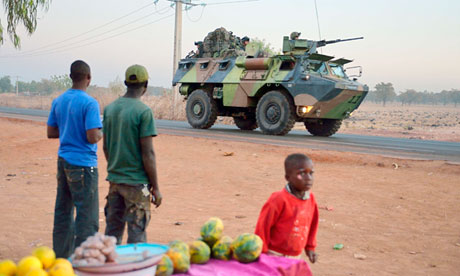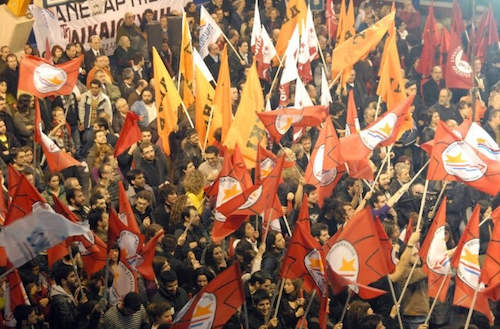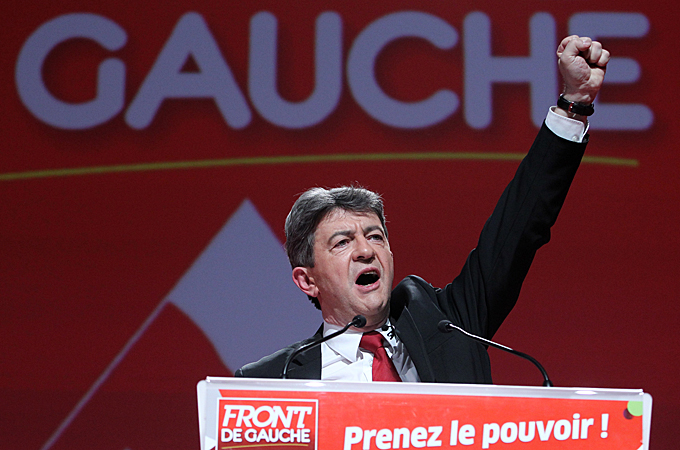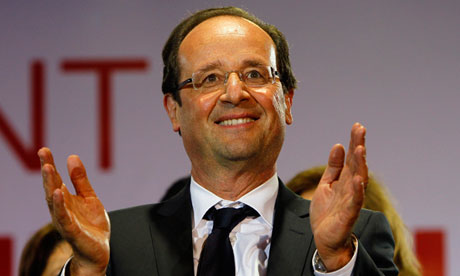France
Day of the people: Gracchus Babeuf and the communist idea
Doug Enaa Greene delivered the above talk to the Revolutionary Students Union at the Un
France: New Anti-Capitalist Party congress wrestles with challenge of the Left Front

[Click HERE for more analysis and discussion of French politics.]
By Dick Nichols
February 15, 2013 – Links international Journal of Socialist Renewal -- The four years since the founding of France’s New Anti-Capitalist Party (NPA) have been a roller coaster rise and fall for the organisation, which was created in 2009 on the initiative of the Revolutionary Communist League (LCR), the former French section of the Trotskyist Fourth International.
The party’s rapid early growth seemed to confirm the premise on which it was founded — tens of thousands of France's workers and young people wanted to get active against capitalism’s crises and crimes, but were wary of existing left organisations and looking for a new sort of political home.
France: As Hollande takes the social-liberal road, what prospects for the left?

France's Socialist Party President Francois Hollande with the Left Front's Jean-Luc Melenchon.
French troops in Mali ‘for the long haul’; left responds to war

French troops in Mali.
[Click HERE for more on Mali.]
By Roger Annis
February 6, 2013 – A Socialist in Canada, posted at Links International Journal of Socialist Renewal with the author's permission -- ”France is in Mali for the long haul.” That’s the headline of the France daily Le Monde on February 4. The newspaper’s front page, as well as pages 2 and 3, were devoted to a discussion over "what next" for France and the world in Mali.
The views of the newspaper’s editors are explained in a front page editorial. (The editorial translated into English is below.) Describing in the politest of terms France’s historic role in Africa as a slave and colonial power, and summarising the political situation in Mali and west Africa as a “struggle against narco-Islamists”, the newspaper argues for a long-term, Haiti-style tutelage of Mali.
France launches war in Mali to secure resources, stamp out national rights struggles

"The military attack in Mali has been condemned by groups on the political left in France, including the Nouveau parti anticapitaliste (New Anti-Capital

By Paul Kellogg
France: The rise of the Left Front (Front de Gauche) – a new force on the left

Jean-Luc Melenchon.
[Read more on French politics HERE.]
By Murray Smith
August 2, 2012 – Links International Journal of Socialist Renewal -- The Left Front (Front de Gauche) emerged onto the political scene at the beginning of 2009. As the Left Front to Change Europe, it was established by three organisations -- the French Communist Party (PCF), the Left Party (PG, Parti de Gauche) and the Unitary Left (GU) -- with the aim of standing in the European elections of June 2009.
France: After election win, what course will Francois Hollande take?

Francois Hollande.
By Murray Smith
French politics after the fall of Sarkozy

A young supporter of the Front de Gauche (Left Front).
Tariq Ali: The rotten heart of Europe (video)
May 15, 2012 – Tariq Ali's keynote lecture on the state of Europe presented at the annual